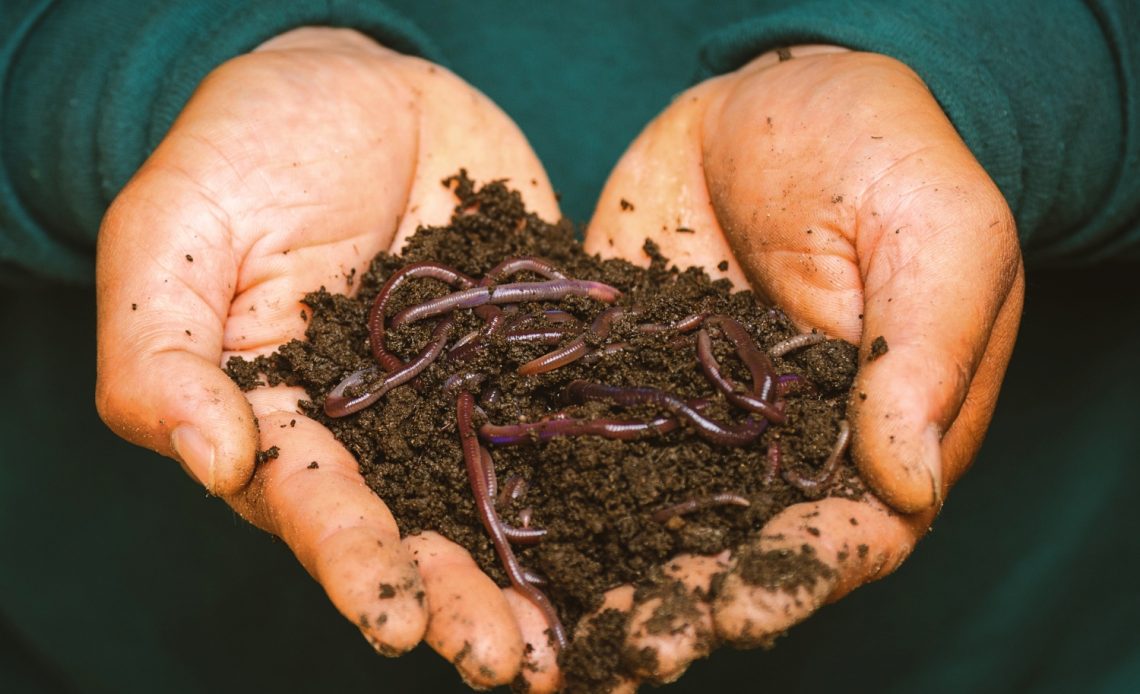

We’re here to help! Wild Yards is a completely free website that is 100% dedicated to helping you create a wildlife-friendly, sustainable yard. Read more
WildYards is reader-supported. When you buy a product through a link on our site, we may earn a comission. Every product is independently selected by our (obsessive) editors and our reviews are unbiased and objective. Read more about our mission or our privacy policy.
Also called vermicompost, worm casting is a decomposing compost comprised of decaying plant materials that have been broken down with the help of worms.
Many gardeners use worm castings to amend the soil in their gardens. Vermicompost can be used to add structure to the soil making it easier for plants to take root, while also improving drainage.
Worm castings also add valuable vitamins and minerals to the soil that plants need to survive.
Overall, worm castings enrich the soil making it more fertile for your flowers, fruits, and vegetables.
This organic fertilizer has many benefits to offer. But there are some disadvantages of worm castings that are worth considering, too.
Worm castings are not a significant source of nutrients for plants and should not be used as a fertilizer alone. Vermicompost is also time-consuming to produce and can be expensive, especially if you need to fertilize a large area.
5 Disadvantages of using worm castings in your garden
Don’t get us wrong, there are lots of good reasons to add vermicompost to the soil in your flower beds and vegetable garden!
Many plants benefit from worm castings because they enhance soil fertility, improve moisture retention, and support a healthy pH level.
Research shows that worm castings can help plants grow bigger and stronger.
But there are some misconceptions about what worm castings actually do. In some cases, the disadvantages of worm castings outweigh the benefits they have to offer.
Here are 5 reasons why you should think twice before choosing worm castings to fertilize your plants.
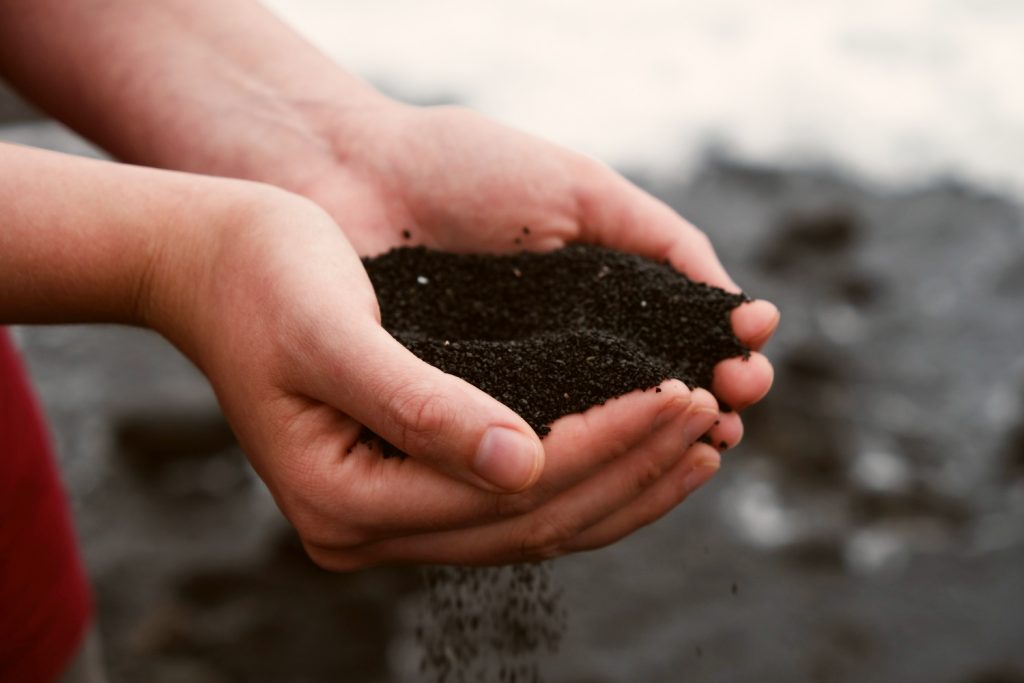
Worm castings are not a significant source of nutrients
Vermicompost is great for enhancing the soil. It contains trace amounts of a variety of vitamins and minerals that plants need to survive.
Keywords: trace amounts.
Worm castings can help replace some of the nitrogen, phosphorus, and potassium that were lost at the end of the growing season.
Although the NPK ratio of vermicompost can vary wildly depending on which materials were added to it, the average NPK ratio of vermicompost is 1-2% nitrogen, 1-2% phosphorus, and 0.5-1% potassium.
This is a low-dose fertilizer. While vermicompost can be used to patch the nutritional holes in your plant’s “daily diet”, it isn’t substantial enough to be used as a fertilizer.
If you’ve tested your garden’s soil and found it to be significantly deficient in one or more nutrients, then worm castings should not be relied upon to resolve those deficiencies.
Worm castings simply don’t contain high enough levels of vitamins and minerals to meet the nutritional demands of your plants.
Unlike traditional compost, which offers plants long-lasting nutrition thanks to its slow-release nature, worm castings provide a small dose of nutrients initially, and once the nutrients have been used up, it has little else to offer.
Worm castings can be used to improve soil structure, particularly if your soil is clay-rich or sandy. But it needs to be mixed with other organic high-nitrogen fertilizers, high-phosphorus fertilizers, and high-potassium fertilizers to support plant health.
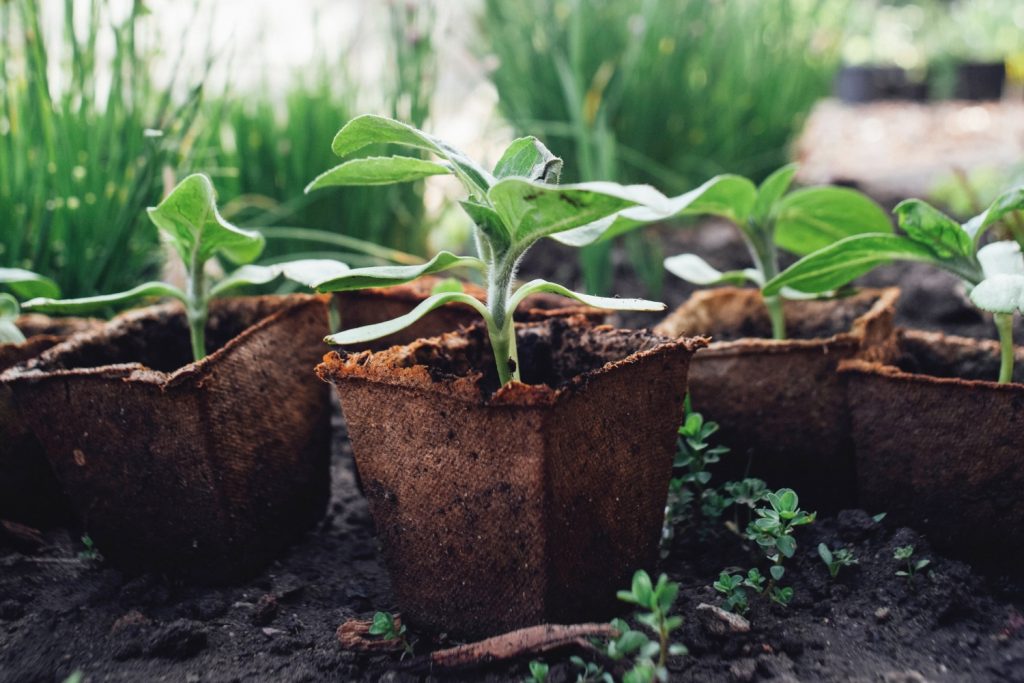
Vermicompost is time-consuming to produce
It can take 3 to 6 months to produce vermicompost. That’s about twice as long as it takes to produce traditional compost.
First, the worms must be fed. Suitable materials, like kitchen scraps, must be added to the substrate for the worms to break down. The worms typically need to be fed two times a week.
After 3 to 6 months, when there are enough castings to warrant a harvest, the contents of the vermicompost bin are emptied onto a tarp.
The vermicompost is then shaped into a pyramid. Once poured out, the worms will naturally try to hide because they hate light. The pyramid offers them protection, and they’ll congregate at the base of it.
Next, the worm castings and bedding from the beds are scraped away from the outside of the pyramid.
The gathered materials are then spread out and allowed to air dry thoroughly before being sifted to separate the castings from the bedding material.
At long last, your vermicompost is ready to be used in your garden.
As you can see, producing worm castings is a labor-intensive task. If you’re a backyard farmer or hobbyist horticulturist, you may not have the time or the space needed to produce your own vermicompost.
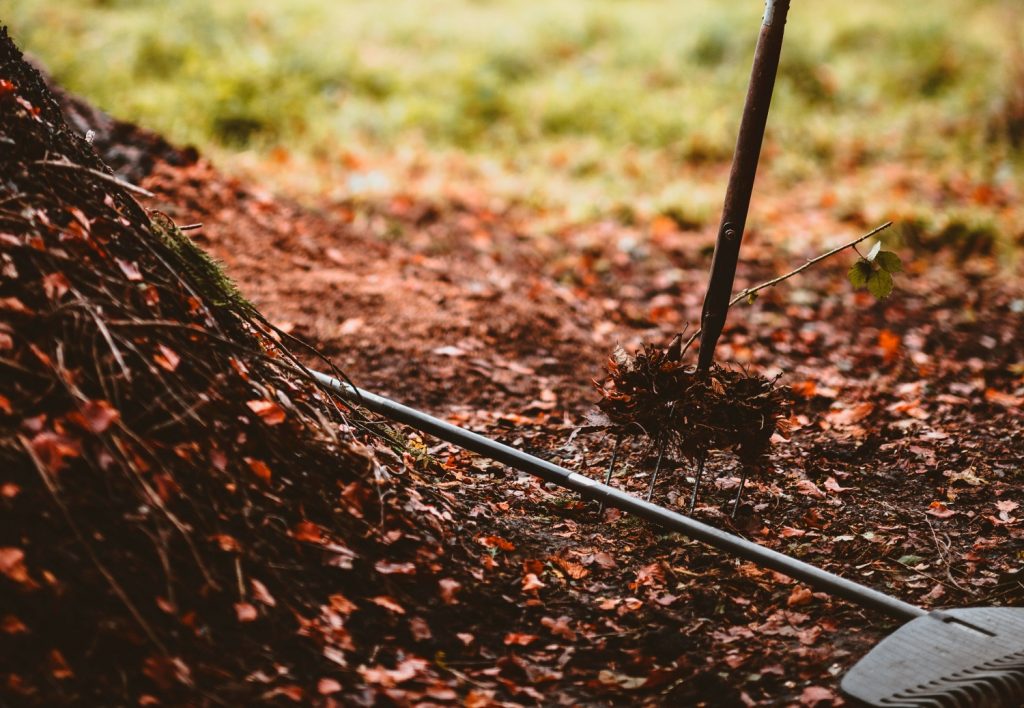
Worm castings can get expensive
If you decide that making your own vermicompost is too much trouble, then the good news is, you can buy some instead.
But, there is a catch.
Because worm castings are so time-consuming to produce, they’re usually priced accordingly.
Worm castings can be expensive, especially if you need to amend a large vegetable patch or multiple garden beds.
To mitigate the cost, worm castings can be mixed with manure and/or traditional compost to stretch them out a bit (more on this later!).
But for gardeners on a budget, worm castings are an expensive choice of soil amendment that doesn’t have as many benefits to offer as other organic fertilizers.
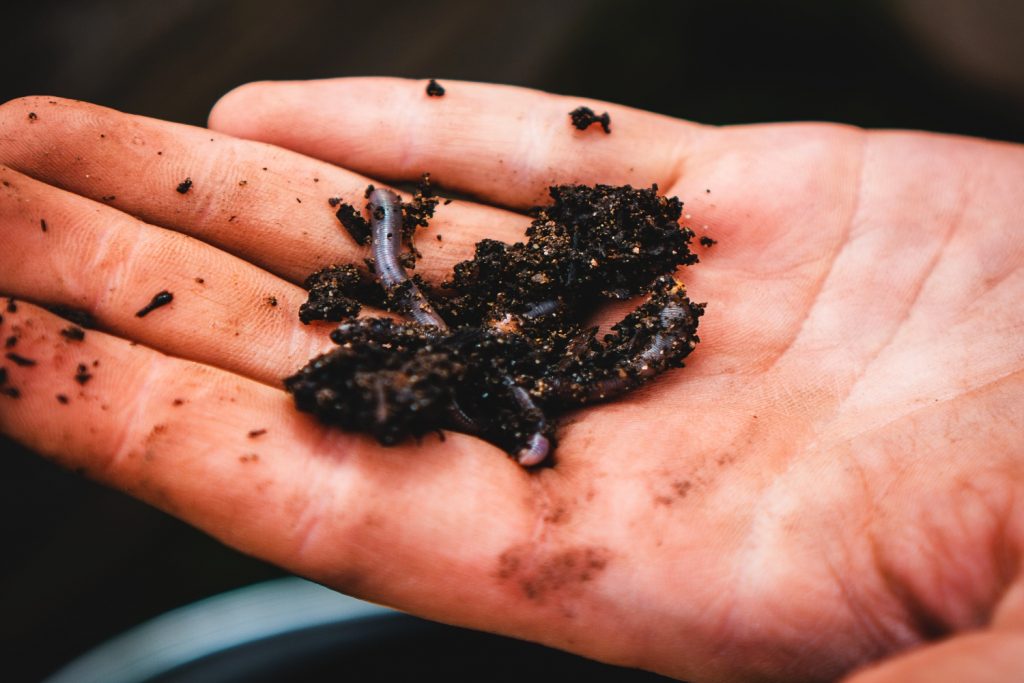
Vermicompost retains moisture
If you have sandy soil that is far too loose for plants to root into, or clay that makes it difficult for plants to develop strong root systems, then worm castings can be used to improve soil quality.
Vermicompost adds structure to loose, sandy soils that lack organic matter. It also breaks up overly compacted soils keeping them loose and airy, so plants can root into them easily.
But if the soil in your yard already retains moisture, then adding vermicompost can impede drainage.
Now, some plants love growing in wet soils. Willow trees thrive when planted near water, as do many varieties of elephant ears.
But when it comes to fruits and vegetables, these plants grow best in soils that can be kept slightly damp to the touch but still drain well.
If you add vermicompost to loamy soil that already tends to stay damp, this won’t help your plants. Instead, it will trap excess moisture, making them more prone to root rot.
Moist soils make your plants susceptible to fungi, bacteria, and other diseases. Adding worm castings to these types of soils can worsen conditions for your garden.
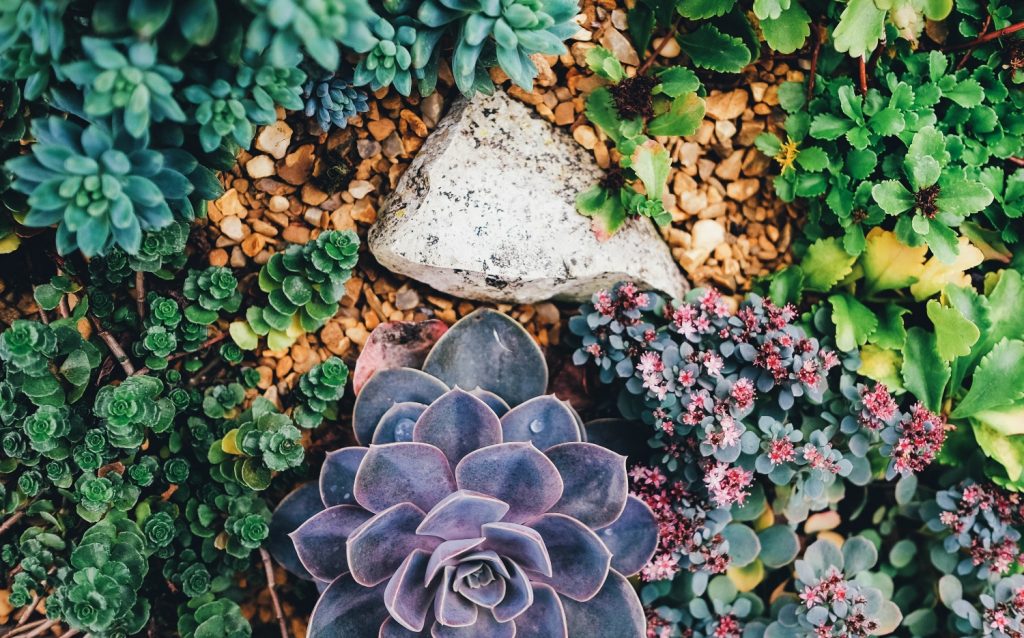
Worm castings can be smelly
If you’re an organic gardener, then chances are, you’re used to working with smelly soil amendments.
So for some people, the smell of vermicompost isn’t enough to prevent them from using it.
But one of the disadvantages of worm castings is that they can be pretty stinky depending on what goes into them.
Although this smell does not have a negative effect on your garden per se, it can cause problems down the road.
Certain pests are attracted to the smell of worm castings.
Possums, armadillos, and other critters that enjoy scrounging for bugs may be attracted to the smell of vermicompost. The “perfume” of the worm castings may trick them into thinking the worms themselves are lurking in your flower beds.
Don’t be surprised if you wake up one morning after applying vermicompost only to find your garden has been dug up by varmints.
Additionally, if the vermicompost is kept overly moist, it can become a breeding ground for pesky insects, like gnats and fruit flies, which can make tending to your garden a pain.
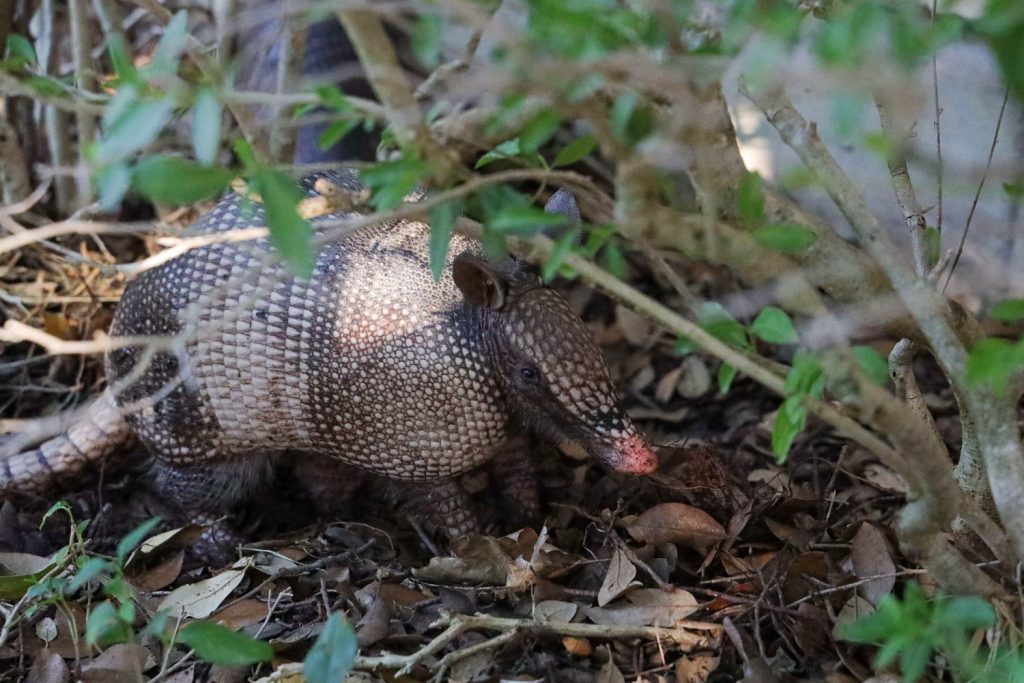
5 Alternatives to worm castings
Worm castings have their uses.
But because vermicompost is relatively nutrient-poor, and because it can be troublesome to manufacture and costly in large quantities, you’re far better off mixing worm castings in with other organic soil amendments.
Here are a few great alternatives to worm castings that you can use in your garden instead.
Traditional compost
If you’re looking for a substitute for worm castings, the differences between traditional compost and vermicompost are negligible. In fact, in terms of benefits, traditional compost has more to offer.
For starters, it’s much easier to produce compost.
You can add a variety of materials to a compost bin that you wouldn’t be able to add to a worm farm, including cardboard, paper, and other brown matter ingredients.
Traditional compost can also be produced in half the time. Homemade compost is ready to be used in 3 weeks to 3 months’ time.
Compost offers plants a variety of nutrients, and has a higher NPK ratio than worm castings.
Although the numbers can fluctuate depending on which ingredients are included, the average compost has an NPK ratio of 1.3-3% nitrogen, 0.5-1% phosphorus, and 1-2% potassium.
While compost is not potent enough to act as a fertilizer for nutrient-deficient soils, its nutritional profile is marginally better than worm castings.
Compost has the added benefit of supporting healthy soil bacteria. Feeding the good microbes in the soil helps plants develop strong root systems and healthy fruits, and boosts their immune systems so they can fight off pests and diseases more easily.
Bat guano
For soils that have a decent nutritional profile, but need a bit more structure, bat guano is an appropriate alternative to worm castings.
Again, the NPK ratio can vary. But bat guano is typically in the range of 3% nitrogen, 10% phosphorus, and 1% potassium.
Since bat guano is relatively high in phosphorus, it’s an excellent choice for flowering and fruiting plants.
Bat guano has a similar consistency to worm castings, so it can also be used to add structure to the soil. This fertilizer also enhances soil microbial activity, to help you grow healthier plants.
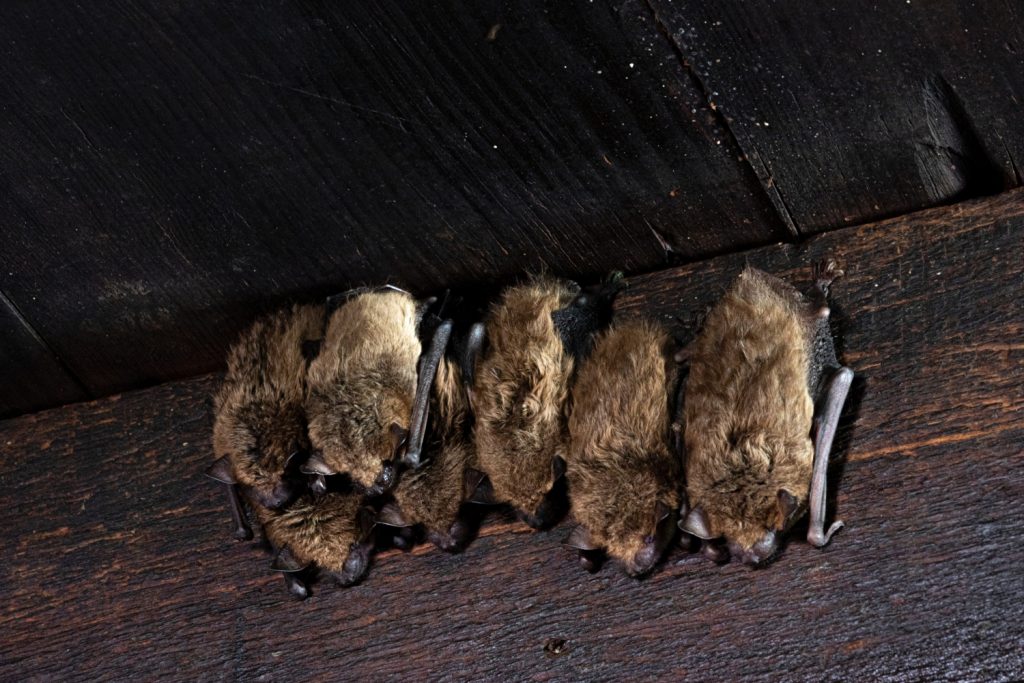
Kelp meal
Maybe you’re looking for an organic fertilizer to give the plants in your garden a healthy dose of trace minerals.
Although not as critical to plant health as nitrogen, phosphorus, and potassium, trace minerals like magnesium, calcium, zinc, iron, and manganese support strong root systems, and healthy flower and fruit development.
Kelp meal is a sustainable organic fertilizer that helps replenish lost stores of these beneficial trace minerals.
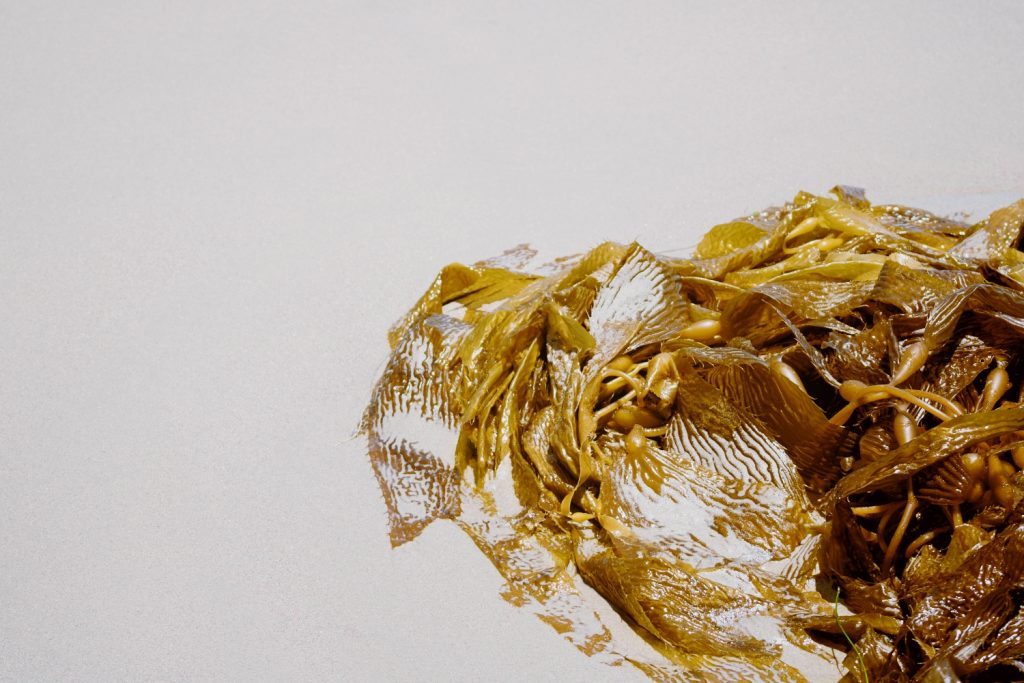
Fish emulsion
Fish emulsion is easy to use. Simply dilute the liquid concentrate in water and use the mixture to feed your plants.
You can even mix fish emulsion with rice water to give your plants even more nutrients.
Fish emulsion is a mild fertilizer that can be used as a foliar spray as well. Because this fertilizer contains 2-5% nitrogen, it can help treat yellowing foliage without causing burn.
Feed your plants fish emulsion at the start of the growing season, or add it to your compost heap once a month to make it more fertile.
Manure
If worm castings are unavailable, manure works just as well for adding structure to the soil.
Although different types of manure have different NPK ratios, there’s no need to go looking for a specific type of manure for your garden.
Simply use whatever is locally available to you. Many farmers and ranchers are more than happy to give manure away, as long as you’re willing to collect it yourself.
Aged manure works better in most cases because it has lower levels of nitrogen, so it’s less likely to burn your plant’s roots.
But green manure (that is fresh manure) has much higher levels of nitrogen. This type of manure is ideal for preparing beds for spring planting.
Covering beds in autumn after the last vegetables have been harvested gives green manure a chance to break down over the winter.
By the time you’re ready to sow seeds and transplant seedlings, the manure has decomposed and released some of its nitrogen. It will no longer burn the roots.
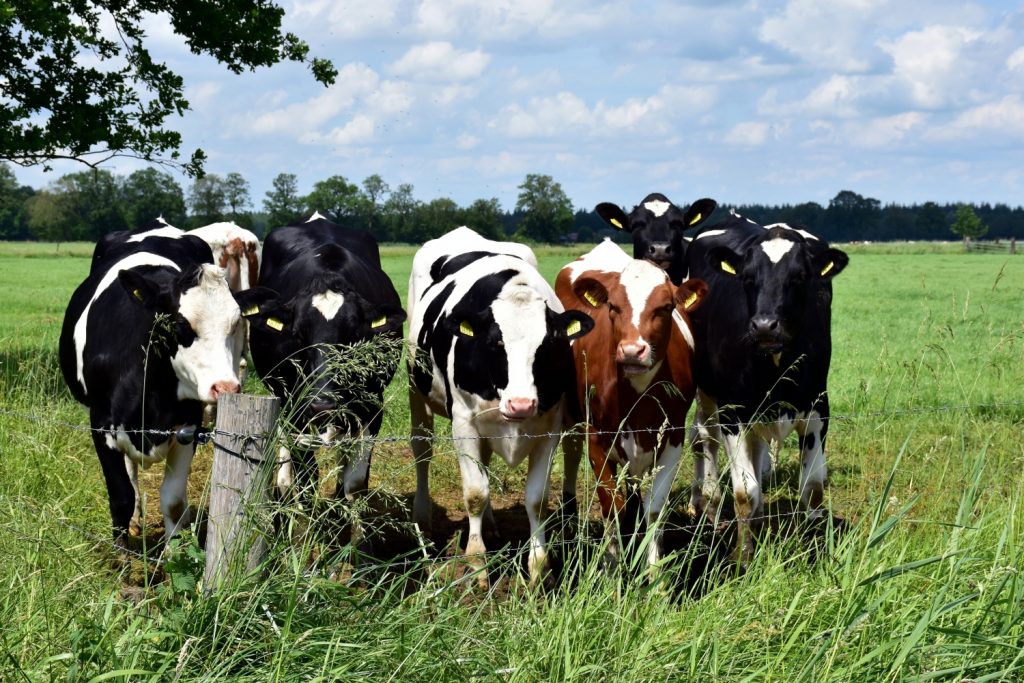
Tips for using and replacing worm castings in your garden
When it comes to worm castings, it certainly has many benefits to offer. But it’s not like vermicompost is the golden ticket to a great garden.
There are many suitable replacements for worm castings. It all depends on what your soil needs.
The best garden soil is one that includes a variety of amendments to create a nutritious substrate that is loose enough for plants to root into and provide good drainage, yet has enough structure to help anchor growing plants and retain valuable moisture.
Utilizing a variety of organic soil amendments is key to creating a healthy garden.
Adding the right organic materials in the right quantities replaces beneficial nutrients, and supports a healthy soil microbiome.
Always test your soil’s nutrient levels and pH before applying fertilizers. This way, you can avoid adding too much of one mineral or making the soil too acidic or too alkaline.
Now that you know about the disadvantages of worm castings, you can make an informed decision as to whether or not to include this organic compost in your fertilizing program.
